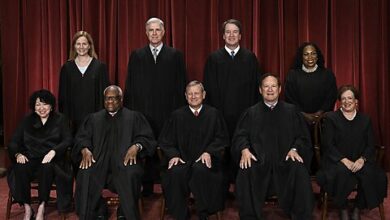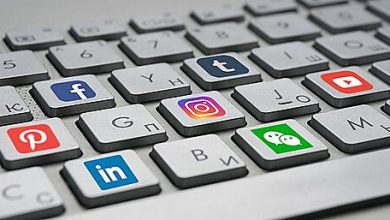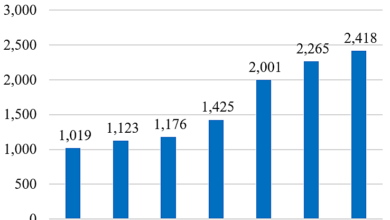Kimmel Cancellation a Dangerous Sign for Free Speech

Following the assassination of Charlie Kirk, comedian Jimmy Kimmel offered some remarks about the killing, the assassin, and the way the right was responding. The next day, he was suspended from his job on late-night television after facing significant blowback, including from government officials. Four days later, Kimmel returned to his show. But the danger to speech has not passed so quickly.
No court would support President Donald Trump removing Jimmy Kimmel from his job by force unless his statements led to an immediate threat of violence, which they did not. Direct censorship by a state actor is clearly forbidden by the First Amendment, regardless of how one interprets Kimmel’s confusing choice of words.
But it is also true that Kimmel has no constitutional right to keep his job if his employer (ABC-Disney) wishes to fire him for what he said about the Kirk shooter. Or perhaps because his show is losing viewers and money. Disney, not Trump, suspended Kimmel. And then they reinstated him. And the latest news is that some of ABC’s local broadcasters—also known as affiliates—still don’t want to air Kimmel. This is within their expressive rights, though they will have to address their contractual obligations with ABC. So, should we conclude Kimmel’s suspension was a nothingburger for the First Amendment?
Not so fast. Government officials need not act directly to censor speech. They can threaten private actors to get them to do what a president cannot legally do, also known as jawboning or censorship by proxy. In this case, Trump could threaten Disney’s CEO, who in turn suspended Kimmel. On the surface, the suspension would be permitted (Disney is a private actor) and yet forbidden (Trump is a government official).
Threats require leverage, the capacity to deny someone something they want. Why does Trump have leverage over Disney? The company owns some local broadcasters and works with affiliates that have broadcast licenses worth billions. Under federal law, the Federal Communications Commission awards those licenses to companies that meet several standards, including broadcasting “in the public interest.”
The day after Kimmel’s comments, the head of the FCC, Brendan Carr, offered remarks worth quoting at length:
In some quarters, there’s a very concerted effort to try to lie to the American people about the nature, as you indicate, of one of the most significant newsworthy public interest acts that we’ve seen in a long time. In what appears to be an action by Jimmy Kimmel to play into that narrative that this was somehow a MAGA or Republican motivated person.
If that’s what happened here with his conduct, that is, that is really, really sick. And I’ve been very clear from the moment that I have become chairman of the FCC, I want to reinvigorate the public interest.
What people don’t understand is that the broadcasters…are entirely different than people that use other forms of communication. They have a license granted by us at the FCC and that comes with it an obligation to operate in the public interest. And we can get into some ways that we’ve been trying to reinvigorate the public interest and some changes that we’ve seen.
But frankly, when you see stuff like this, I mean, look, we can do this the easy way or the hard way. These companies can find ways to change conduct and take action on Kimmel or there’s going to be additional work for the FCC ahead.
To summarize: a government official clearly believes but does not quite say that “lying” about Charlie Kirk’s death contravenes the public interest. Carr argues that such speech violated FCC rules against news distortion or hoaxes. Kimmel was speaking on a property owned by a corporation that uses local broadcasters who need government licenses to operate. It is not hard to see that tolerating those “lies” on those properties would bring those licenses to broadcast into doubt.
Disney had a lot at stake in those licenses. Their leadership had to assume that Carr believed Kimmel was lying and thus violated the public interest standard. The company decided to deal with the issue “the easy way,” that is, they suspended Kimmel. The Disney leadership knew an offer they could not refuse when they saw it.
Some may argue that what happened to Kimmel was just business and market forces at work. We agree that ABC-Disney may have had strong incentives to pull Kimmel. As mentioned earlier, his show faced a cratering ranking and backlash from many viewers, and local affiliates didn’t, and still don’t, want to air Kimmel. But Chairman Carr made this about government coercion the moment he threatened broadcast licenses. Threats by the FCC are not market forces and shouldn’t be tolerated in America.
The FCC should never have been given such power over speech by broadcasters. Almost sixty years ago, the Supreme Court upheld the FCC’s oversight of a huge exception to the First Amendment, the broadcasting spectrum. That decision should be invalidated and with it the law underpinning the FCC.
The public interest standard itself is absurd and dangerous. We discover the public interest through free speech; it is not a standard to be applied at the beginning of our public debates to exclude disfavored views. And we are arguing about “the public interest.” Disagreement over political views cannot be the basis of censorship in an open society. At a bare minimum, FCC policies against news distortion should be done away with as they are, as Cato scholars noted earlier this year, hopelessly subjective and liable to abuse for political ends.”
Regardless of whether you like Kimmel or not, in America, we settle our political disagreements and correct errors with more speech, not the government strong-arming the media into only airing certain viewpoints on late-night television.





